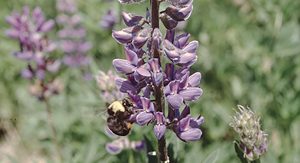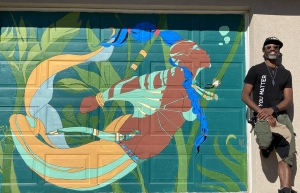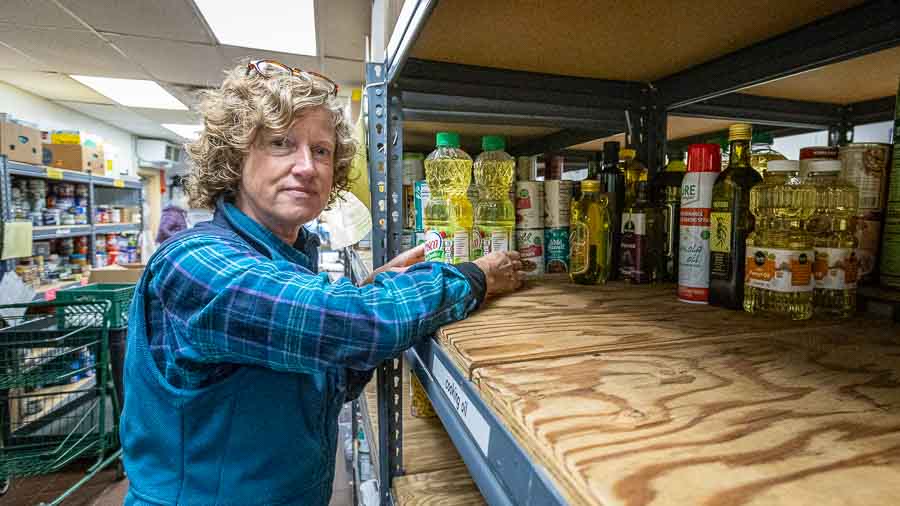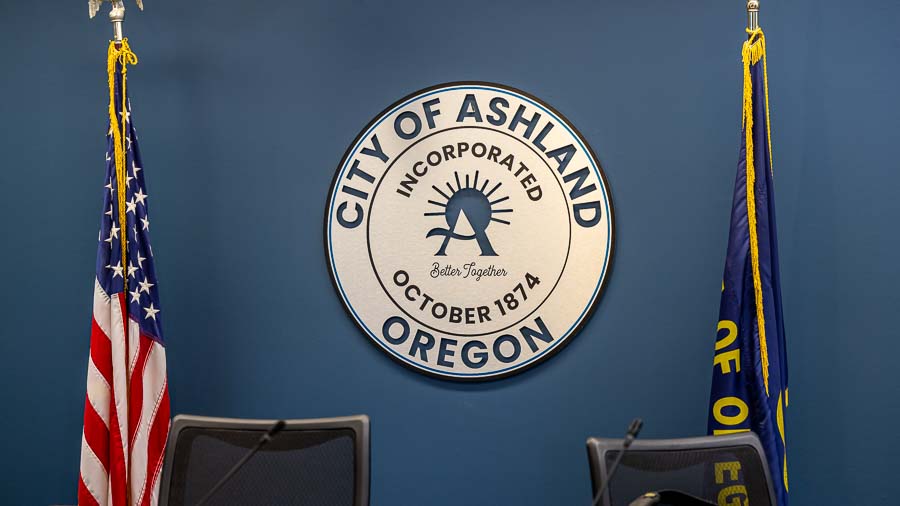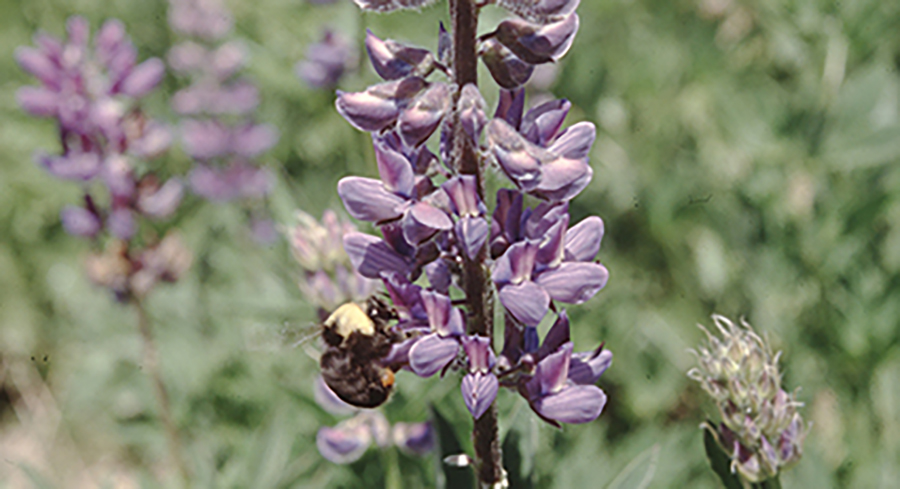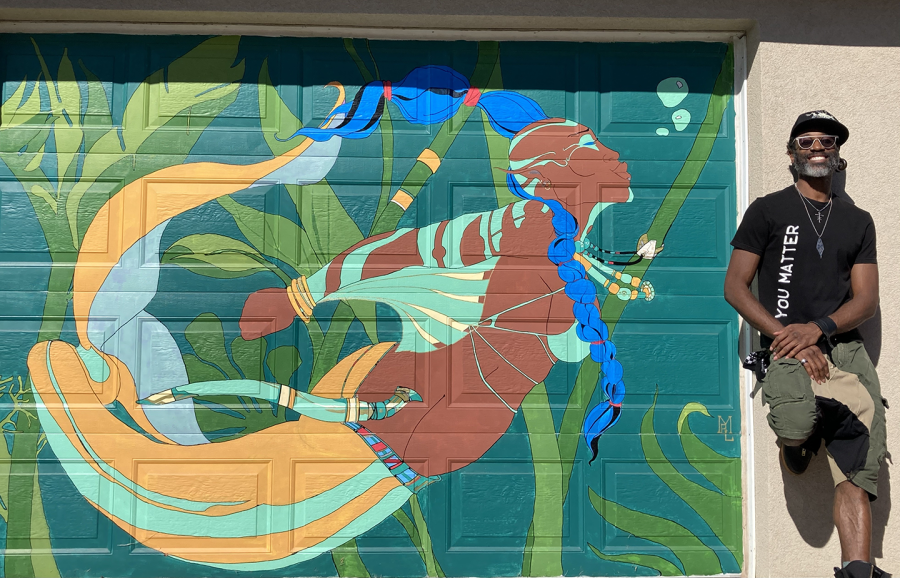The sanctuary, which also takes in donkeys, will welcome the public to an ‘Open Barn’ event on Oct. 12
By Julia Sommer for Ashland.news
Fifty-seven horses and two donkeys currently are living out their lives in peace and comfort at Equamore Foundation’s sanctuary in an idyllic setting on Highway 66 just south of Ashland.
Rescued from neglect, abuse and starvation in Jackson County and sometimes beyond, these equines are generally reported to the Jackson County Sheriff’s Office, which has jurisdiction over livestock in the county.
Linda Davis, founder and executive director of the foundation, and sanctuary manager, said, “37% of our horses come through law enforcement seizures and surrenders. Sometimes owners call and say they will put down their horses if the sanctuary won’t take them.”

Sheriff’s office personnel investigate reports of abused horses and donkeys and usually try to get owners to do better, Davis said. Sometimes criminal neglect and abuse charges are filed.
Davis graduated from Medford High School in 1967 and moved to San Francisco, where she boarded her horse at the Golden Gate Park stables. She moved back to the area in 1975 and rented nine acres for $25 a month next to what is now the sanctuary. There, she launched a horse boarding/training operation.
Equamore fundraiser
Equamore will hold an ‘Open Barn’ Buy-a-Bale fundraiser from 2 to 4 p.m. Sunday, Oct. 12. Visitors who ‘buy’ a bale for $8.50 will support the sanctuary’s $14,000 annual budget for straw. Refreshments will be served. Address: 4723 Highway 66. Details: equamore.org.
A long-running rescue organization
In 1979, Davis bought the 22.3-acre Equamore property, where she continued her horse boarding and training operation. In 1991, after seeing too many cases of unwanted horses, she founded the nonprofit Equamore Foundation. It’s one of the longest-running equine rescue organizations in the U.S., and the only such facility in Southern Oregon.
Once accepted at Equamore, equines live the remainder of their lives under the care of the sanctuary’s trained staff and volunteers — never to be sold, leased, rented, adopted or ridden.
Even the “pests” are treated kindly at Equamore: rats, mice, and pigeons are fed birth control in a palatable form.
How to help
One of Equamore’s residents is Snoop. Once a roping horse, he ended up in the hands of an abusive owner. Snoop’s story won over the hearts of a local 4H Club and he was sponsored by the group of young equestrians.
For those who want to help, $450 a month fully supports an equine of your choice. To learn about the equines that need sponsors, go to the sanctuary’s website, equamore.org.
Or you can join an already established support team with a monthly contribution.
A legacy gift this year paid off Equamore’s mortgage.
Supported solely by donations and grants, Equamore is open to the public for privately scheduled barn tours, “Open Barn” events and other fundraising events throughout the year. The next Open Barn is from 2 to 4 p.m. Sunday, Oct. 12.

Equamore’s beautiful, tree-lined lawns are available for private events that help support sanctuary residents and further the foundation’s mission.

The Equamore Sanctuary and Foundation office is located at 4723 Highway 66. For more information, email equamore@charter.net or call (541) 482-5550.
Oregon Hay Bank
The Oregon Hay Bank, a program of Equamore Foundation, provides responsible horse owners facing financial crisis with hay and feed assistance, hoof care and veterinary services so they can keep their horses at home. Qualifying organizations can request assistance with up-front costs of rescuing unwanted horses and assistance during times of crisis, such as natural disasters.
Applications for organizations and individuals can be obtained by email at linda.oregonhaybank@charter.net.
Equamore publishes a quarterly newsletter, NeighSaver, and expects to soon meet all requirements to be accredited by the Global Federation of Animal Sanctuaries.
You can visit Equamore Sanctuary from 2 to 4 p.m. Sunday, Oct. 12, for a Buy-a-Bale of Straw fundraiser. Refreshments will be served. Visitors may support the sanctuary’s $14,000 annual budget for straw if they wish. Each bale costs $8.50.
Thirty-seven stalls are cleaned and re-bedded each morning; four to five bales of straw are used daily.
Email freelance writer Julia Sommer of Ashland at juliamsommer@gmail.com.







